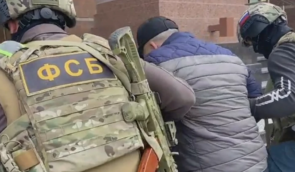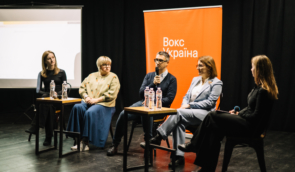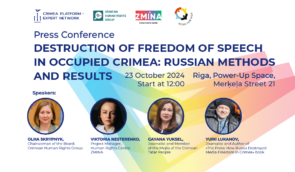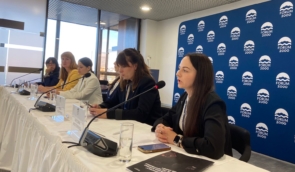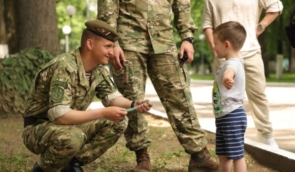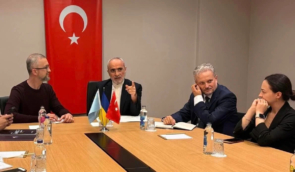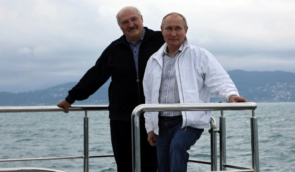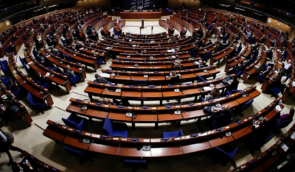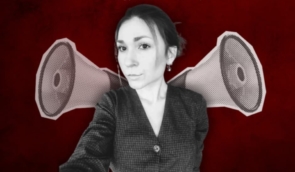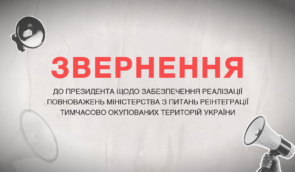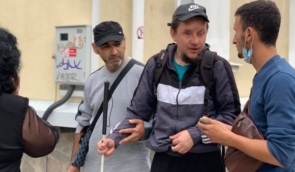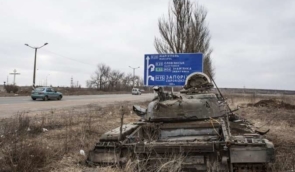During war, freedom of speech preserved in Ukraine but united telethon should be stopped – survey of journalists
The majority of Ukrainian journalists believe that freedom of speech is preserved in Ukraine even under martial law. At the same time, they also consider that the united news telethon should be stopped and that it is a form of censorship.
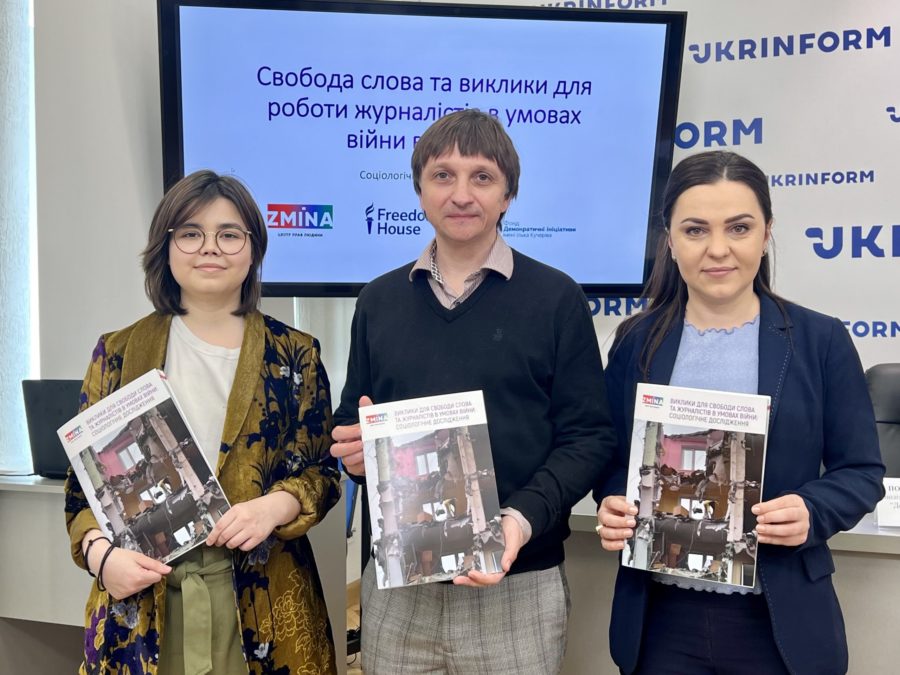
Such are the results of a sociological research on challenges for freedom of speech and journalistic activity in wartime which was presented in Kyiv on World Press Freedom Day, May 3. The survey involved 165 journalists from different regions of Ukraine. It was conducted by the Ilko Kucheriv Democratic Initiatives Foundation in cooperation with the Human Rights Centre ZMINA.
In particular, journalists estimate the freedom of speech in Ukraine in 2023 at 6.4 points on a scale of 1-10, 1 being very poor and 10 being very good.
At the same time, after February 24, 2022, a significant part of the interviewed media workers have faced violations of the right to freedom of speech and information in their activities. Most often, journalists mentioned the refusal of officials to provide socially important information (51% of respondents), censorship of prepared materials or prohibition of publication of certain information (22%) and refusal of accreditation (17%).
Journalists who acknowledged the presence of censorship, most often stated that it is carried out by various state or local authorities, as well as media owners. Self-censorship of journalists is ranked third.
In addition, 62% of surveyed journalists consider the united news telethon launched at the beginning of the full-scale invasion to be a form of censorship. Two thirds of respondents also consider that the united news telethon should be stopped and all broadcasters may start broadcasting independently. Some respondents say: the united news telethon should be preserved at least until the end of the active phase of the war. At the same time, almost all of them believe that it needs to be modified and the quality of the content should be improved.
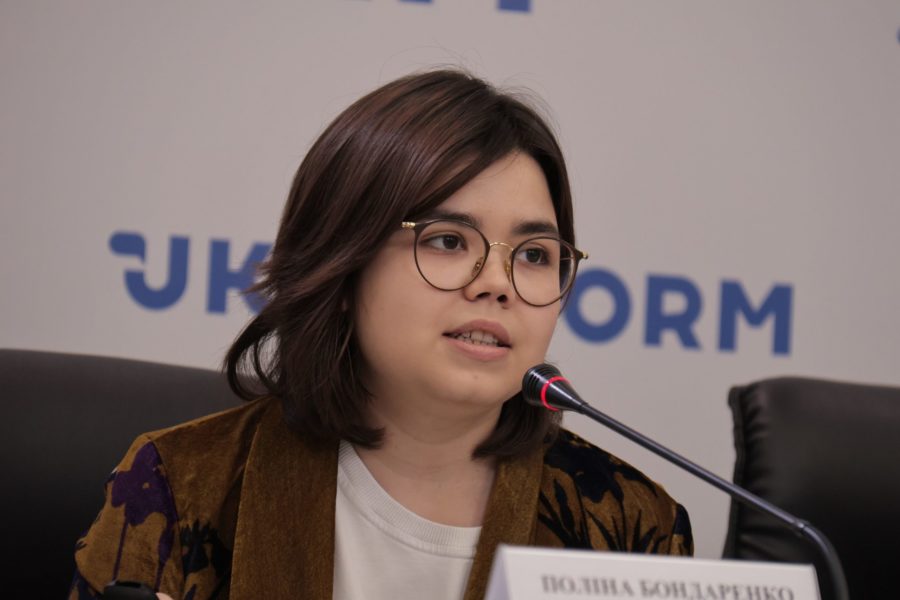 Polina Bondarenko. Photo: Ukrinform
Polina Bondarenko. Photo: Ukrinform “Censorship was most often imposed with the explanation that we are at war (57%), that it is in the interests of the country (44%), and also that such a position is not popular in society (29%),” said Polina Bondarenko, political analyst at the Ilko Kucheriv Democratic Initiatives Foundation. But, she added, the majority of respondents do not consider war censorship to be critical for freedom of speech.
At the same time, 40% of surveyed journalists believe in the need for limited censorship, and a third are against it. At the same time, 44% of respondents believe that there are topics in Ukraine that cannot be written or talked about (for comparison: a quarter of respondents had such an opinion in 2019).
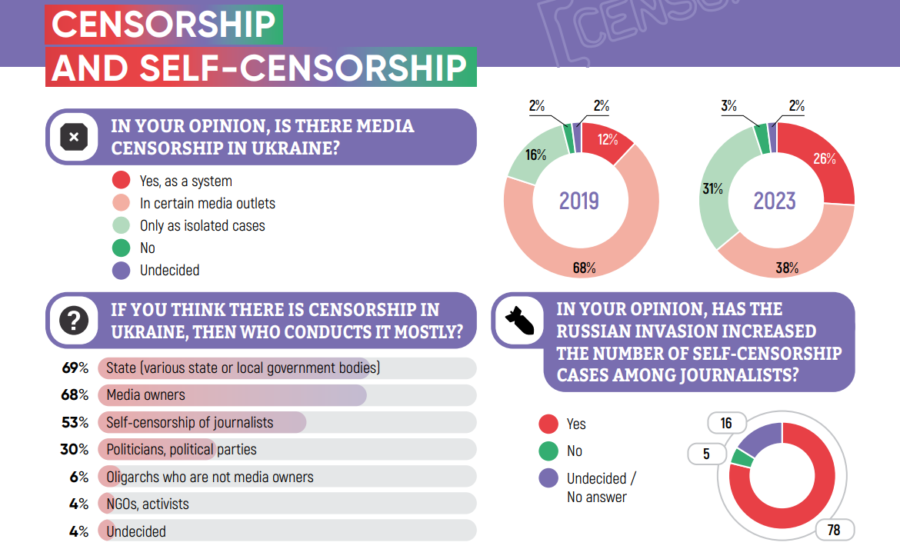
The majority of media workers (78%) say that the Russian invasion has resulted in a bigger number of self-censorship cases. Among the reasons that force journalists to self-censor, three are key: fear of making a mistake or difficulties in verifying information and personal beliefs (45% each) and fear of losing a job (44%).
The media professionals consider physical threats or threats to life related to work in combat zone (67%), decrease in media funding (55%), censorship by authorities (47%), and a low qualifications journalists (45%) to be the greatest threats to freedom of speech and journalistic activity.
“Overall, journalists estimate the state of freedom of speech as good, they do not accept various forms of censorship. However, there is a negative trend: self-censorship and censorship by the authorities are replacing the censorship by media owners which dominated in the past years. Moreover, a large number of journalists believe that it is possible to hide certain information if it is useful or necessary for the state. This motive can give rise to the further development of restrictions on freedom of speech and is quite dangerous since it is supported by journalists themselves. But it is also clear that the restrictions that exist now are perceived by journalists as forced during the war, and there is hope that they will not put up with this after it ends,” commented Volodymyr Yavorskyi, expert at the Center for Civil Liberties.
“Wartime circumstances place special demands on the work of journalists. On the one hand, the interests of state security, the protection of civilians and the military may have priority over the rights to access to information, freedom of speech and expression. On the other hand, free media and freedom of speech in Ukraine are not only a cornerstone of democracy but also an additional factor of Ukrainian resistance – independent media and journalists can clearly outline the existing problems and bring their solution closer. The high-quality work of journalists allows us to convey the true picture of the war in Ukraine to Ukrainians and foreigners and to gain support from many countries around the world. That is why it is important for us to preserve freedom of speech in the conditions of war,” said Tetiana Pechonchyk, head of the Human Rights Centre ZMINA.
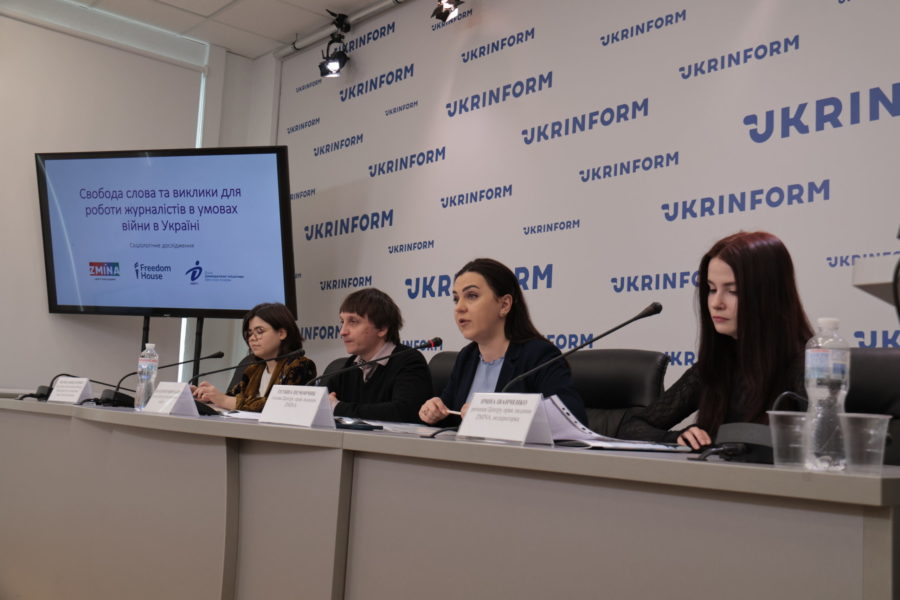 Photo: Ukrinform
Photo: Ukrinform The research was conducted by the Ilko Kucheriv Democratic Initiatives Foundation in cooperation with the Human Rights Centre ZMINA with the support of the Freedom House Ukraine. The research consisted of a quantitative expert survey of 132 journalists between January 18 and 27, 2023, as well as a qualitative focus group study (three focus groups of 11 media professionals each). For comparison, the data of a similar survey conducted between May 30 and June 14, 2019, involving 127 journalists, are cited.
Text of the research. Infographics.
Watch the video from the event.

